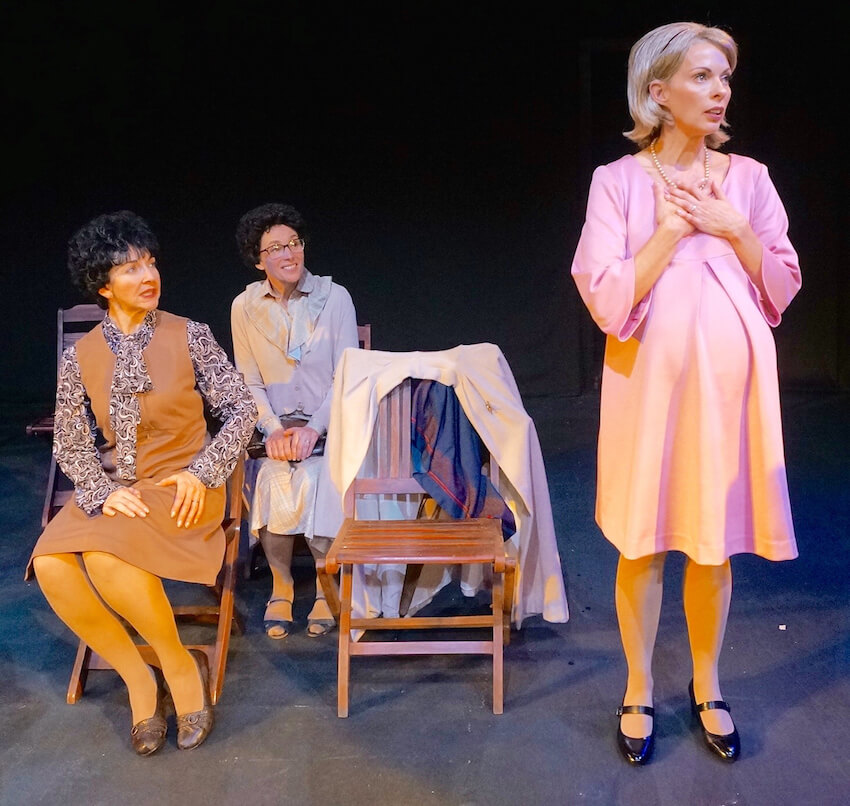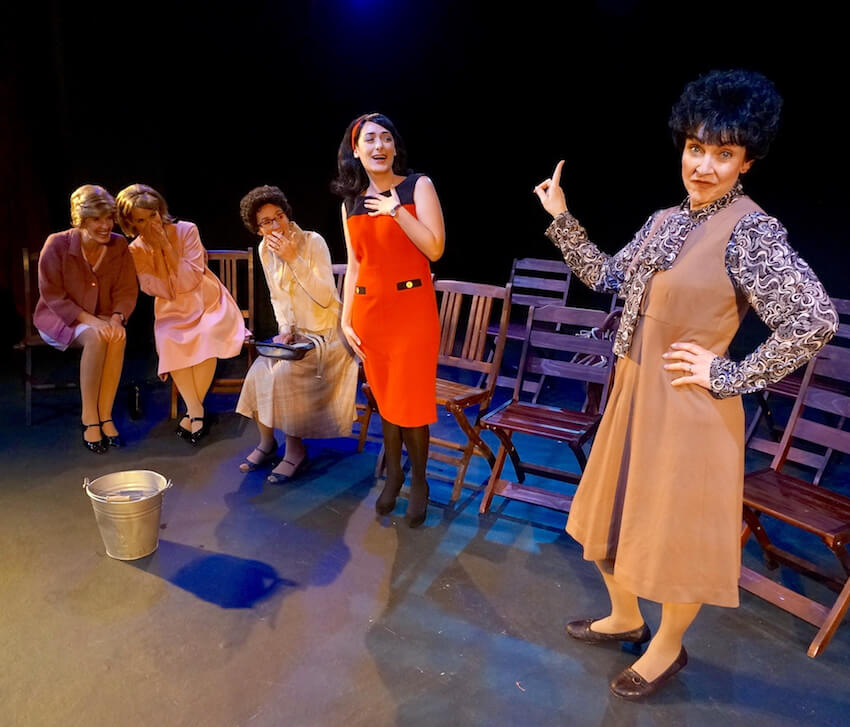 The one thing that unites every single person is death.
The one thing that unites every single person is death.
Few people make it through life unscathed by the loss of a loved one, as this universal fate transcends race, religion, colour or nationality. So we can watch a play about Welsh women grieving for their dead children and feel our own hearts twinge as we hear them say what we might say, and express emotions that have shattered us, too.
The Revlon Girl is a touching and cathartic play by Neil Anthony Docking based on a true story. It’s set in Aberfan, a Welsh mining village where an enormous slag heap collapsed and slid down the mountain in 1966, burying 144 people. The school was right in its path, and 116 children died.
Docking has done impeccable research to give us enough facts piece by piece so we know what happened and can imagine the mums and miners frantically trying to dig out their buried children.
The bereaved mothers meet every week to support each other, and decide to invite the Revlon make-up girl because they’ve ‘let themselves go.’
 Warmth and love, simmering resentment, hidden stories and fears and misgivings are all aired in turn or simultaneously as the women talk of the past more naturally than they deal with the present. Humour throughout the story keeps the play from becoming too heavy, although it is essentially a tragedy.
Warmth and love, simmering resentment, hidden stories and fears and misgivings are all aired in turn or simultaneously as the women talk of the past more naturally than they deal with the present. Humour throughout the story keeps the play from becoming too heavy, although it is essentially a tragedy.
The script captures their sense of loss superbly, as do each of the five actors in their own different ways.
Heidi Mollentze is magnificent as swearing, straight-shooting Rona, using wit and sarcasm to plaster over the pain. It’s the meatiest role in some ways, with plenty of forceful lines and a great character to inhabit, and an electric scene when her pain inevitably tumbles out too.
The meeker role of Marylin (Julie-Anne McDowell) calls for a quieter strength to portray a barely coherent woman and make her convincing, rather than allow her to be overlooked as the audience concentrates on the larger characters. McDowell does it so well you could cry just to look at her, especially when she strips the make-up off her face and wails: “I don't want to look better.”
The stage set is simple – a room above a bar in a poor mining village is naturally scant on décor, so all we have are chairs that are carried in as the women convene their meeting. The costumes and hair are perfect 1960s frump, with dowdy brown crimplene of the frugal housewife. There’s a constant drip of water coming through the skylight that varies its intensity along with the action, and perhaps metaphorically representing how things are falling apart.
 The vivid clothes of the Revlon Girl (Marianthe Smart) make a stark contrast to the surrounding gloom, as she brightly tries to keep things focused on the make-up. Smart’s accent falters occasionally – she’s supposedly driven across the border from west-country England - but she perfectly portrays the insurmountable awkwardness of trying to perform business as usual amidst so much grief.
The vivid clothes of the Revlon Girl (Marianthe Smart) make a stark contrast to the surrounding gloom, as she brightly tries to keep things focused on the make-up. Smart’s accent falters occasionally – she’s supposedly driven across the border from west-country England - but she perfectly portrays the insurmountable awkwardness of trying to perform business as usual amidst so much grief.
Her cheerful sales patter sounds shallow and starkly incongruous in the devastated village. Life changing make-up. Creams that will bring new life to your skin. You cringe for her as the bereaved mums ponder the frivolity and utter alien-ness of problems that can be solved by powder and paint. But there’s depth to Smart’s role, and she does a wonderful job in letting her own bubbly mask be cracked by the snivels as she’s drawn into the pall of sorrow.
The script delivers morbidly funny reminders of how many innocuous phrases can torment a brain with images of death. As the women skirt around the leaking water they’re reminded not to kick the bucket….oops…
There are regrets and recriminations too, and a clash of ideals as Jean (Natasha Sutherland) who married the vicar, tries but fails to convince even herself that God knows best.
Sian (Michelle Douglas) is another heart-breaker as the peace-maker and people pleaser, until she delivers her own backstory of a husband who has grown cold to her, divided by their sorrow, not united. Docking’s intelligent and sensitive script really examines grief and the hoped-for recovery from every angle.
The programme features some photos of the Aberfan disaster and the story, but the ladies on stage have already made it superbly, sorrowful real.
The Revlon Girl runs at Sandton’s Auto & General Theatre on the Square until December 2. Tickets from Computicket or from the theatre on 011 883-8606.